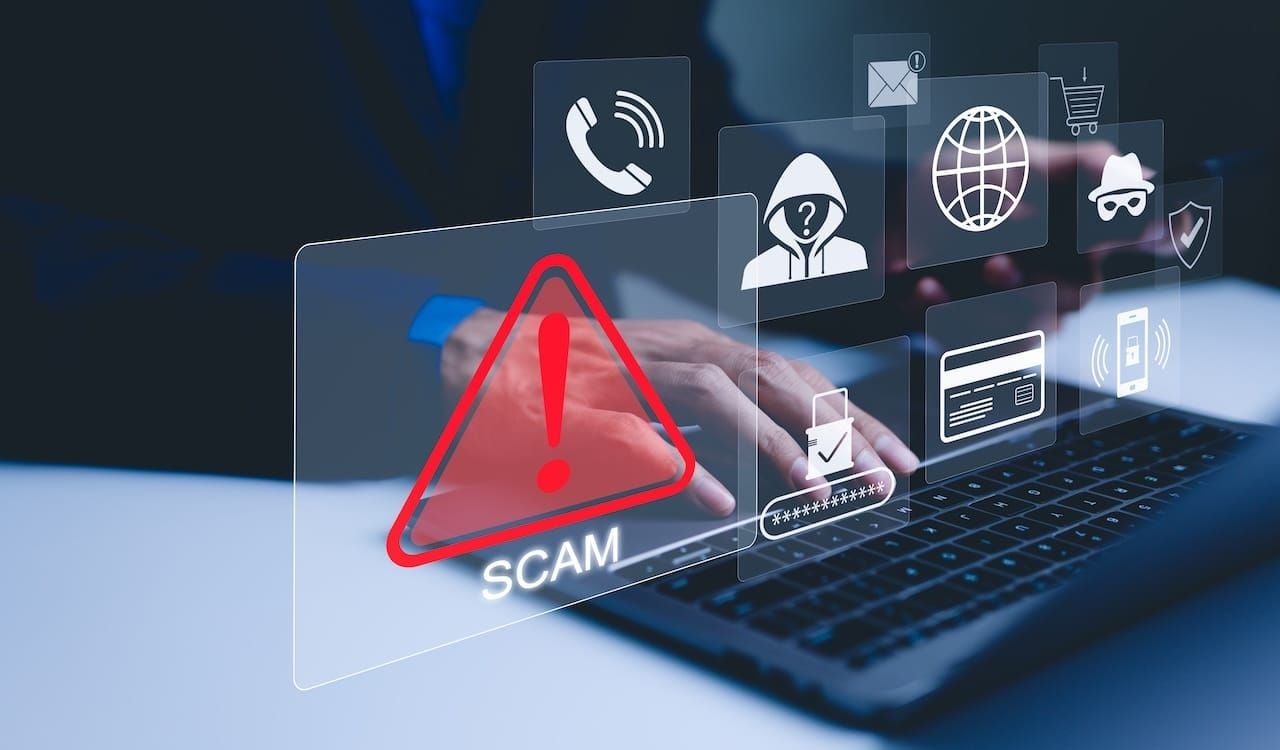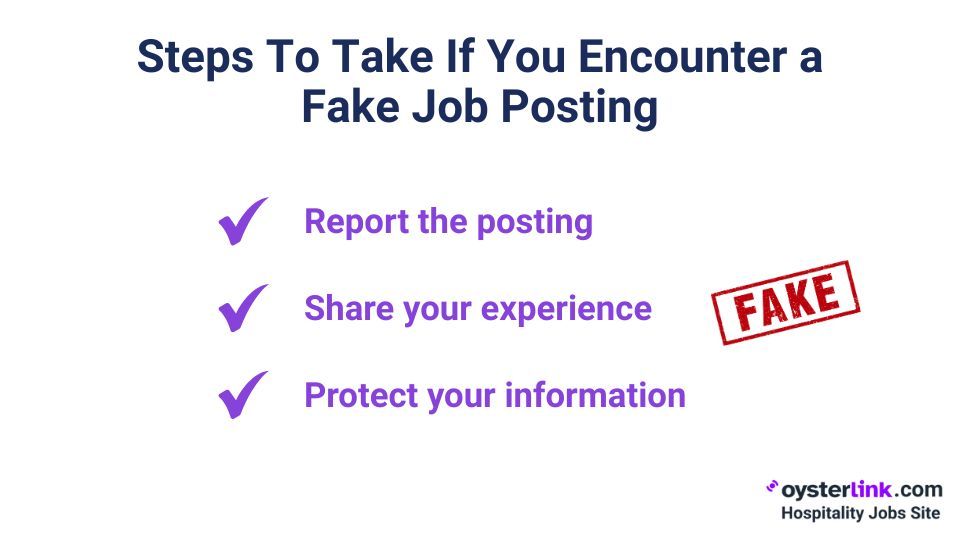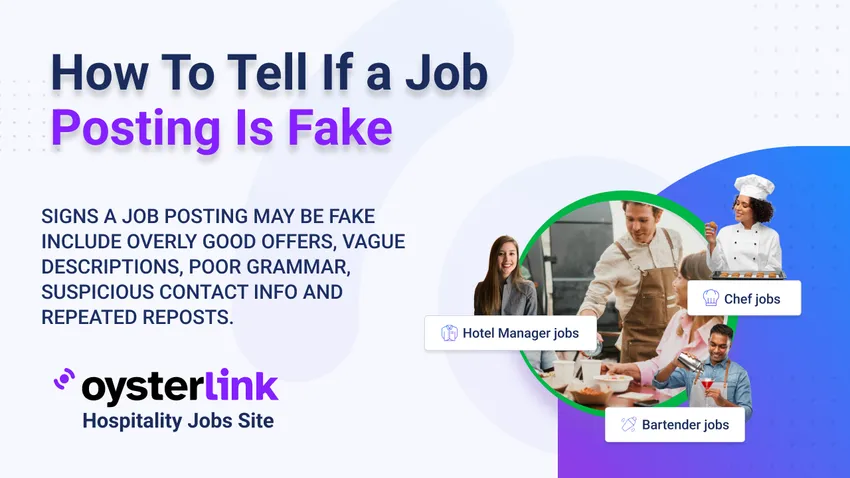Job hunting is a mix of excitement and stress. There’s the thrill of finding your next opportunity, but endless applications and interviews can feel overwhelming.
Add fake job postings into the equation — whether outright scams or ghost jobs (positions that don’t actually exist) — and the process becomes even more overwhelming.
While not every fake listing leads to disaster, recognizing the warning signs is key to protecting yourself.
This guide will teach you how to tell if a job posting is fake and help you avoid potential scams during your job search.
Spotting a Fake Job Posting: Ghost Jobs vs. Actual Scams
Before we explore the common signs of fake job postings, it's important to understand the difference between ghost jobs and outright scams.
While both are types of fake job listings, they have different motivations and consequences.
Ghost jobs are listings for roles that aren’t actually available or, in some cases, aren’t intended to be filled right away. Companies might post these for various reasons:
- To gather resumes for their database
- To appear like they’re actively hiring, even if they’re not
- To test the job market for potential candidates before moving forward with the official hiring process
While ghost jobs are frustrating, they’re generally not malicious. They waste your time, but they don’t typically pose financial or personal risks.
Job scams, on the other hand, are designed to exploit you — whether financially or by stealing sensitive information.
How To Tell the Difference
Ghost jobs typically come from legitimate companies, but the positions themselves are often non-existent.
On the other hand, job scams involve suspicious practices, such as urgent payment requests, unrealistic offers or unprofessional communication.
How To Spot a Fake Job Posting: 13 Common Signs

Fake job postings aren’t always easy to identify, but they often share some telltale signs.
Here’s how to recognize them, with practical examples to help you spot the red flags in real-life scenarios.
1. Too-good-to-be-true offers
If a job offers an unusually high salary or extravagant benefits compared to similar roles in the industry, it’s a major red flag.
Example: A job listing for a Dishwasher at a small diner promises a $80,000 annual salary and unlimited paid time off. This doesn’t align with industry standards and is likely a ploy to draw in unsuspecting applicants.
2. Vague job descriptions
Legitimate employers typically provide clear details about job responsibilities, qualifications and expectations. Vague postings leave you guessing.
Example: A listing for a Hospitality Associate offers no specifics on whether the role involves waiting tables, working at the front desk or managing events. Instead, it uses generic phrases like "helping with daily operations" without any context.
3. Unrealistic requirements
On the flip side, some fake postings include overly ambitious qualifications or tasks that seem impossible for the role.
Example: A Busser position requires “10 years of fine dining experience and fluency in three languages,” which far exceeds what’s typically needed for such a role.
4. Urgent language
Scammers often create a false sense of urgency to pressure you into quick decisions. While real employers may prefer a prompt start, fake postings use tactics like claiming positions are “filling up fast” or insisting you take immediate action.
Example: A posting says, “Apply now! Only two spots left! Candidates who don’t commit today will lose the opportunity!”
5. Poor grammar
This is probably the most obvious red flag for how to tell if a job posting is fake. While occasional typos are understandable, job postings riddled with spelling errors, poor punctuation or awkward phrasing suggest unprofessionalism — or worse, fraud.
Example: A posting saying, “We are looking 4 an Experience Cook too work in our Resteruant. Apply imidiately for gud salary benifits!”
6. Overly casual or unprofessional tone
A job posting written in an unprofessional manner can indicate that it’s not legitimate. Real companies strive to maintain a professional image, even when hiring for entry-level roles.
Example: A job listing for a Hostess reads, “Hey, y’all! We’re looking for some cool peeps to join our team — hit us up!” This language might feel approachable but lacks the professionalism of a genuine opportunity.
7. Sketchy behavior
Fraudulent recruiters may avoid video calls or insist on communicating via informal platforms like WhatsApp.
They may also be evasive about providing answers to your questions about the role, company or hiring process.
Example: A recruiter insists on conducting the interview over WhatsApp and refuses to connect via video or phone call. When asked about the role's specifics, their answers are vague or contradictory.
8. Lack of company information
A legitimate employer will provide detailed information about the company. A lack of such details — or unverifiable claims — should raise concerns.
Example: A job post advertises a "prestigious hospitality brand" but omits the company name and provides no way to confirm its existence, such as a website or location details.
9. Suspicious email addresses
Official companies use business email domains. Generic or personal email addresses are a red flag.
Example: A job posting for a Barista role directs applicants to send their resumes to “[email protected]” instead of a professional company email like “[email protected].”
10. Job offer without a formal process
If you receive a job offer with little or no interaction with anyone from the hiring team, it’s likely a scam. Authentic employers require interviews, trials or background checks before hiring.
Example: A listing for a server position promises immediate hiring without any interviews, claiming, “No need to waste time! Start tomorrow!”
11. Requests for money or sensitive information
Legitimate employers never ask for payment or sensitive information like your bank details upfront.
Example: A recruiter asks you to pay for a “training kit” before you can start as a Front Desk Clerk.
12. The job isn’t listed on the company’s website
If the job posting doesn’t appear on the company’s official website, it might not exist.
However, keep in mind some smaller companies don’t always update their websites promptly.
Example: You find a listing for a Fine Dining Server role at a restaurant, but when you check the website, there’s no mention of this position.
13. The same job posting is constantly reposted
Ghost jobs often stay active for months or are reposted repeatedly without updates.
While this isn’t always a scam — some companies genuinely struggle to find the right candidate — it’s still a potential warning sign for job seekers to keep in mind.
Example: A restaurant advertises a Sous Chef role every few weeks, even though there’s no indication that the position has been filled or reopened.
How To Verify the Employer's Credibility
Now, you might already know how to tell if a job posting is fake in most cases — but there may still be times when you're unsure. Fret not because here are actions you can take to confirm the authenticity of the employer:
- Research the company online: Google the company name along with terms like “reviews,” “scam” or “fraud.” Check their website, LinkedIn page and social media accounts to ensure the company is active and reputable.
- Look for reviews on reputable platforms: Check Google Reviews, Yelp or industry-specific platforms to see what people are saying about the business. For hospitality jobs, forums like OysterLink’s community can also be helpful.
- Call the establishment or company directly: If the job posting is for a well-known restaurant or hotel, call them directly to confirm the position. Ask to speak with the hiring manager to verify details.
- Research the job posting source: Some job boards, like OysterLink, review postings to ensure they’re legitimate. Platforms that specialize in hospitality jobs are more likely to filter out scams and ghost jobs.
- Check the email address: Look closely at the sender’s email domain. A professional company won’t use free email domains like “@gmail.com” or “@yahoo.com” for official communications.
- Consult trusted contacts: Ask friends or industry connections if they’ve heard of the company or the position. A quick chat with someone in the know could save you from a scam or ghost job.
Steps To Take If You Encounter a Fake Job Posting
Discovering a fake job posting can be frustrating, but acting promptly and decisively can protect both you and others in the job-seeking community.
Here are the steps to take:

Report the fake job posting
Flagging a fake job posting on the platform where you found it is crucial because it helps prevent others from falling into the same trap.
Most job boards, social media sites and online forums have reporting tools or contact options to address suspicious listings.
When reporting, provide as much detail as possible — like the email address, screenshots of communication and any links provided.
According to a study, 45.45% of job scam victims reported the issue to authorities, while others used social media to raise awareness.
Share your experience
Your story can be a powerful tool for protecting other job seekers. Post about your experience in hospitality job seeker groups, online forums or on social media.
Be specific about what tipped you off, such as vague descriptions, sketchy emails or payment requests.
Protect your information
If you’ve shared personal or sensitive information like your Social Security number, bank details or identification, take immediate steps to secure your identity and finances:
- Contact your bank or financial institution: Report any unauthorized transactions and request a freeze on your accounts if necessary.
- Monitor your credit report: Use a credit monitoring service to watch for unusual activity.
- Reach out to an identity theft hotline: Organizations like the Identity Theft Resource Center can guide you on steps to minimize potential damage.
If you've provided a resume, scammers might try to use your personal information for phishing attempts. Be cautious about unsolicited calls or emails you receive in the following weeks and avoid clicking on unknown links.
Easily Find Verified Hospitality Jobs With OysterLink
Job search doesn’t have to feel like navigating a minefield. OysterLink simplifies the process by connecting hospitality professionals with verified job postings.
Unlike generic job boards, OysterLink specializes in the hospitality industry and ensures that every listing is authentic and relevant.
Whether you’re seeking your first role or looking to advance your career, you can trust that the opportunities here are genuine.
Start your search today and find your next role on OysterLink.










Loading comments...